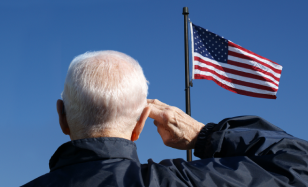About Heart Disease and Camp Lejeune Water
Many veterans exposed to the Camp Lejeune contaminated water are now dealing with heart disease and other heart conditions, but getting disability compensation from the U.S. Department of Veterans Affairs (VA) has been an endless battle.
Additionally, many Camp Lejeune families have reported that their babies were born with cardiac defects after women were exposed while pregnant.
“I have 5 children and my wife has had 1 miscarriage. Child number 4 had several heart defects that required surgeries.”
—Camp Lejeune victim (1980-84)
For decades, heart disease Camp Lejeune victims have been left without answers and, more importantly, no relief.
However, the Camp Lejeune Justice Act (CLJA) of 2022 allows anyone who spent at least 30 days on the North Carolina military base between 1953 and 1987 a new pathway to seek compensation. This includes Camp Lejeune water contamination heart disease victims.
If you or a loved one were exposed to the toxic water at Camp Lejeune and developed heart issues, LawFirm.com may be able to help. Get started with a free case review right now.
What Camp Lejeune Water Chemicals Are Linked With Heart Disease?
Prolonged exposure to tetrachloroethylene (TCE) has been associated with an increased risk of heart disease, especially in occupational settings. TCE is a volatile organic compound (VOC) used in many industrial applications.
According to the Centers for Disease Control and Prevention (CDC), major heart defects are linked to drinking water contaminated by TCE. This man-made chemical was used by commercial dry cleaners near the military base.
Long-term exposure to benzene (found in gasoline, tobacco smoke, and certain industrial processes) has also been associated with an increased risk of heart diseases, including coronary artery disease.
TCE and benzene were both found in water on the base. The water systems most impacted were Tarawa Terrace, Hadnot Point, and Holcomb Boulevard.
What Are the Camp Lejeune Heart Problems?
Camp Lejeune’s water contamination has been associated with a range of serious heart-related health issues.
Camp Lejeune water contamination heart diseases and conditions include:
- Cardiomyopathy: Disease of the heart muscle that weakens its ability to pump blood effectively
- Congenital heart defects: Heart abnormalities present at birth, affecting heart function
- Coronary artery disease: Progressive blockage of arteries, restricting blood flow to the heart
- Heart arrhythmia: Irregular heart rhythms, potentially disrupting the heart’s pumping action
- Heart failure: Inability of the heart to pump enough blood to meet the body’s needs
- Heart attack: Sudden blockage or reduction of blood flow to the heart, leading to tissue damage or death
- Stroke: Disruption of blood flow to the brain, causing brain cell damage or death
If you developed a heart condition or your loved one passed away from a heart-related issue after spending at least 30 days on the base, you may have new options for financial relief.
Call (888) 726-9160 right now. Our case managers are available 24/7 to help.
Camp Lejeune Heart Disease and VA Benefits
Many who served at Camp Lejeune have suspected that the water contamination caused heart conditions, but they faced decades of denials when seeking VA benefits. This is because heart disease is not recognized as a Camp Lejeune presumptive condition.
However, thanks to the CLJA, veterans who were denied VA benefits for a Camp Lejeune heart disease may be able to recover compensation from the federal government.
Even if you receive VA disability benefits and VA health care or were previously denied, you may still qualify.
How the Camp Lejeune Justice Act Helps Heart Disease Victims
The CLJA helps Camp Lejeune heart disease victims by giving them another chance at accessing financial aid. Compensation comes from the federal government and is completely separate from the VA.
The PACT Act gives:
- Camp Lejeune victims the ability to sue the U.S. government for Camp Lejeune-related health issues.
- Family members the right to file wrongful death claims for Camp Lejeune victims who have died from their conditions.
The CLJA also simplifies the process for those with heart diseases linked to Camp Lejeune’s water contamination to file claims for compensation.
The bottom line is that the act makes it easier for those impacted to get the compensation they deserve.
Can I File a Heart Disease Camp Lejeune Claim?
You may be eligible to file a Camp Lejeune heart disease claim if you spent at least 30 days on the base between 1953 and 1987.
This includes active duty military service members, civilian workers, and family members who were exposed to the contaminated drinking water.
While heart disease doesn’t have a recognized service connection, the CLJA opens up new pathways to compensation.
Filing a claim under the CLJA does not affect current or future VA benefits.
You may also be able to file a Camp Lejeune water contamination heart disease claim on behalf of a loved one who died, even if the death occurred decades ago. This could include a child if their mother was pregnant with them on the base for at least 30 days.
LawFirm.com can help you file your claim if you qualify. To file, you must submit evidence to the U.S. Department of the Navy. Once you have completed this step (called an administrative claim), the Navy has 180 days to respond to your Camp Lejeune water contamination heart disease claim.
If they do not respond or deny your claim, you can file a lawsuit against the federal government in the U.S. District Court for the Eastern District of North Carolina.
Deadline to File a Heart Disease Camp Lejeune Claim
The deadline to file a Camp Lejeune water contamination heart disease claim is August 10, 2024.
Meeting this deadline is essential, as failing to do so means you will no longer have the right to seek compensation under the CLJA.
The CLJA gives victims another chance at justice for the contaminated water disaster. This is especially important for heart disease Camp Lejeune victims, who have been repeatedly shut out of accessing relief.
Financial compensation can provide support for medical expenses, pain and suffering, and other damages caused by the toxic water.
A reputable Camp Lejeune lawyer can help ensure you meet your heart disease Camp Lejeune claim deadline. Their expertise can help you secure the compensation you deserve.
Don’t miss this opportunity for justice.
Find a Heart Disease Camp Lejeune Lawyer
If you or a loved one developed Camp Lejeune heart disease or another heart condition after spending at least 30 days on the base between 1953 and 1987, a skilled lawyer can help.
LawFirm.com partners with top lawyers who have already helped over 30,000 families with Camp Lejeune claims.
Don’t miss your chance. Call (888) 726-9160 now or fill out our contact form to get started with a free case review.
Camp Lejeune Water Contamination Heart Disease FAQs
What heart issues are connected to Camp Lejeune water contamination?
Several heart conditions have been linked to Camp Lejeune water contamination, including:
- Cardiomyopathy (diseased heart muscle)
- Congenital heart problems (birth defects that affect the heart)
- Coronary artery disease
- Heart arrhythmias (irregular heartbeat)
- Heart attack
- Heart failure
- Stroke
Does Camp Lejeune water contamination heart disease qualify for the lawsuit?
There has not yet been sufficient medical evidence linking heart disease as a qualifying condition caused by Camp Lejeune water.
However, under the CLJA, you may be eligible for compensation for any harm caused by the toxic water if you lived or worked at Camp Lejeune for at least 30 days between 1953 and 1987.
An experienced Camp Lejeune lawyer can help you determine your eligibility to file a claim for Camp Lejeune water contamination and heart disease.
Get a free case review right now to see if our team at LawFirm.com can help.
What chemicals were in Camp Lejeune water?
Chemicals called volatile organic compounds (VOCs) were found in the water at U.S. Marine Corps Base Camp Lejeune.
The Agency for Toxic Substances and Disease Registry (ATSDR) analyzed the contaminated water supply and determined that VOCs leaked into the groundwater, contaminating wells on the base.
The water at Camp Lejeune contained the following VOCs:
- Benzene
- Dichloroethylene (DCE)
- Tetrachloroethylene – also known as perchloroethylene (PCE) (a dry cleaning agent)
- Trichloroethylene (TCE) (a metal degreaser)
- Vinyl chloride
- Other contaminants
What diseases did the water at Camp Lejeune cause?
The water at U.S. Marine Corps Base Camp Lejeune is linked with many diseases and other health effects, including:
- Amyotrophic lateral sclerosis (ALS or Lou Gehrig’s disease)
- Aplastic anemia and other myelodysplastic syndromes
- Birth defects
- Cancer (bladder cancer, multiple myeloma, non-Hodgkin’s lymphoma, and more)
- Female infertility, miscarriage, and stillbirth
- Neurological disorders
- Parkinson’s disease
- Renal toxicity
- Scleroderma
These are not the only health conditions linked to the toxic water on the base. People who lived and worked there while the drinking water was contaminated have reported various health problems, including Camp Lejeune heart disease.
 Get Legal Help Now
Get Legal Help Now
